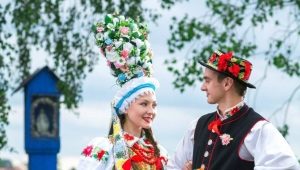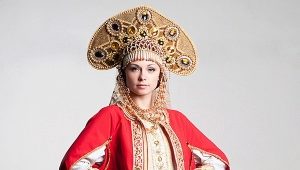Bavarian national costume
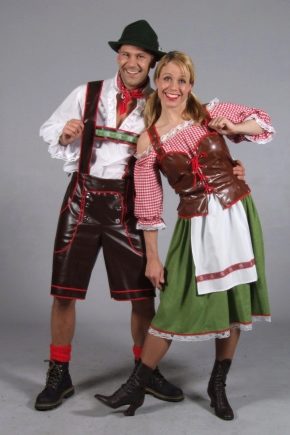
One of the priceless assets of every nation and its culture is the national costume. It has been created over the centuries, taking into account the climatic, economic and social conditions of a particular country.
The traditional national costume contributes to the preservation of age-old traditions and is an obligatory attribute of many folk rituals.
The Bavarian costume is one of the few, surprisingly firmly entrenched in the life of the inhabitants of this part of Germany. Bavarians wear it not only on holidays and special occasions, but also in everyday life.
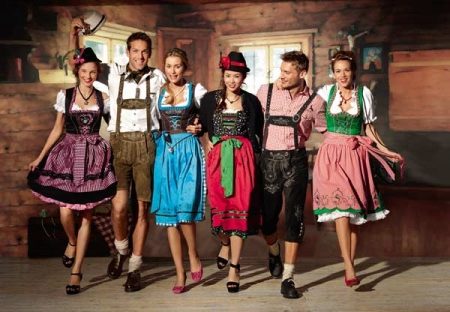
. it considered prestigious and shows that the owner of such clothes has good taste. In addition, this indicates that the Bavarians are extremely sensitive to the national traditions, history and culture of their ancestors.
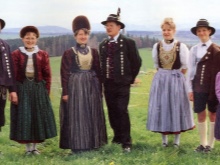
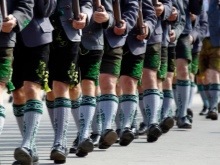
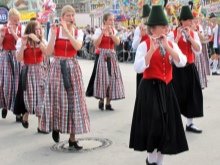
A bit of history
The first mention of the national Bavarian costume can be seen at the very beginning of our era. The primitive and unpretentious appearance of those clothes can be judged by the simplicity of the cut: men wore shirts with or without sleeves, which were sewn only on the shoulders, and loose trousers. As shoes for men, as well as women, a piece of leather was used, attached to the leg with straps.
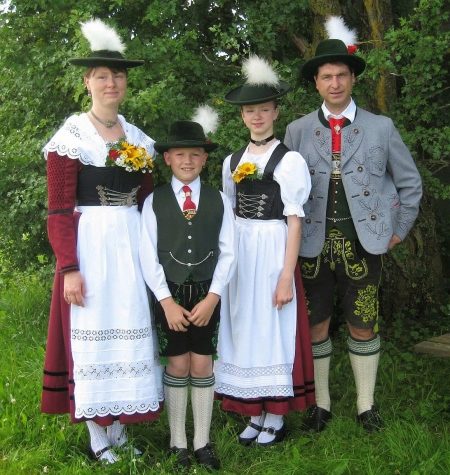
Women wore long dresses, which also consisted of two pieces of fabric sewn together.After some time, women's clothing took on a slightly different form: sleeves and a deep neckline (decollete) became mandatory.
Outerwear was long cloaks equipped with hoods. It was this kind of clothing that was the prototype of the modern national costume.
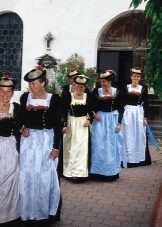
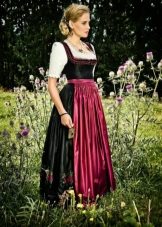
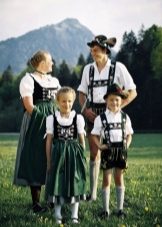
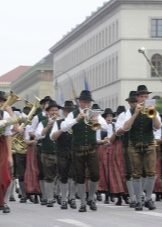
An interesting fact is that at first it was forbidden to decorate the national clothes of ordinary Bavarians with any embroideries, ribbons, laces, use bright, colorful colors. This was the privilege of only the upper strata of the population.
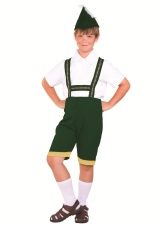
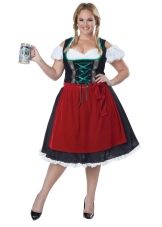
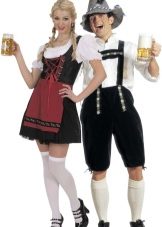
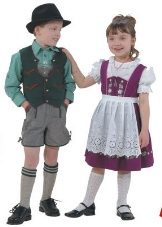
Urban and peasant national costumes also differed in the quality of the used linen: poorer people could not afford to sew clothes from expensive fabrics.
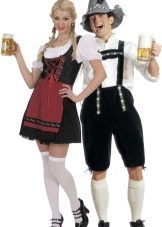
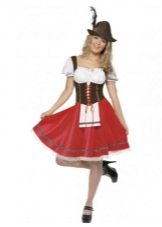
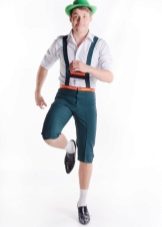
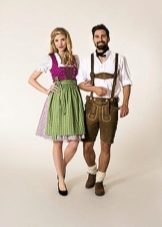
Gradually, with the socio-economic and political development of the country, the national Bavarian costume also changed, acquiring more advanced forms, styles and models that can be seen at this time.
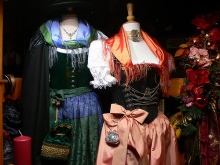
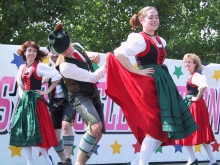
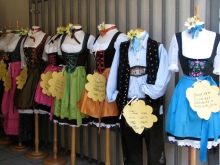
Peculiarities
The modern national Bavarian costume has several features that distinguish it from the costumes of other countries. Even in ancient times by clothes it was possible to immediately understand who its owner was by profession, what status he occupied in society, to judge the age of a person.
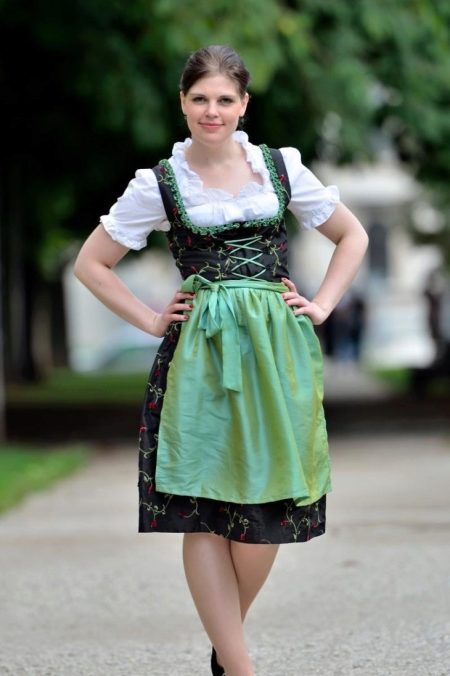
To date, according to the Bavarian costume you can even determine the marital status of its owner and the number of children.
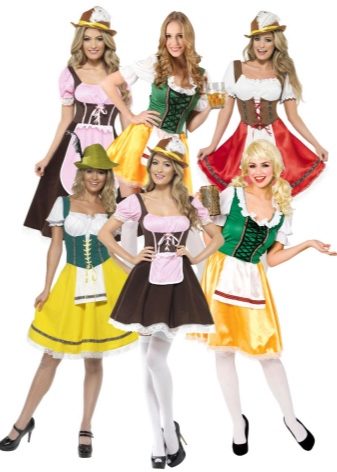
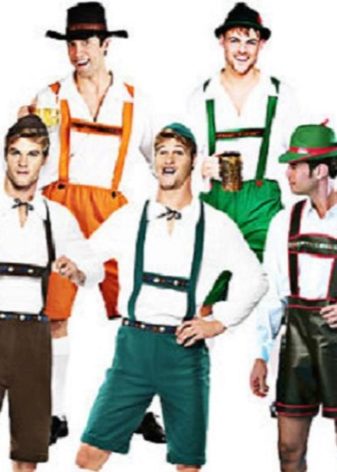
Another feature of the Bavarian costume can be called its routine and familiarity for the local population. Such clothes are not considered something unusual and rare, many Bavarians dress in such suits every day. This gives Bavaria a special charm and originality.
For years, rules and certain traditions of wearing the national Bavarian costume have been developed, which include many nuances.
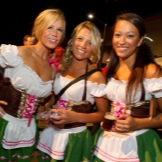
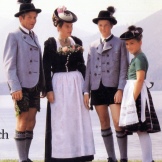
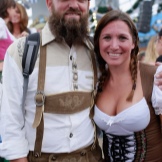
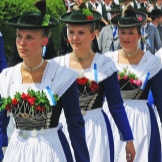
Traditionally national Bavarian clothes are divided into 2 main groups:
- male (trakht);
- female (dirndl).
Colors and shades
The color scheme of Bavarian clothing is rich and rich. Most often, blue, blue, green, red saturated colors, as well as their numerous shades, are used in the elements of the national wardrobe.
The modern costume differs from its progenitor in its colorful appearance, the presence of rich ornaments, embroideries, ribbons and other accessories that immediately catch the eye and attract attention.
Blouses, as a rule, are sewn from snow-white fabric.
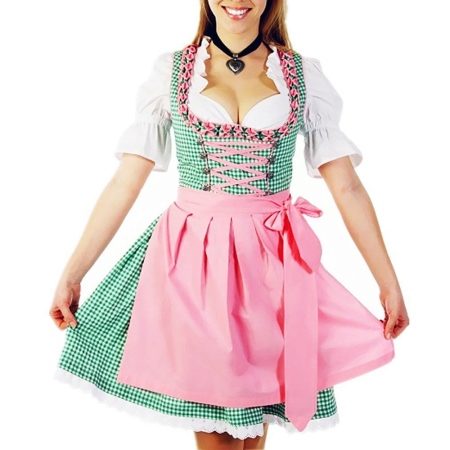
The color range of women's suits is much richer than men's.. Men can emphasize their self-expression on the color of the headgear, which can be the most diverse: green, cherry, blue, etc.
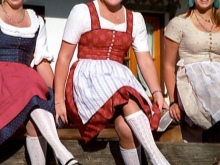
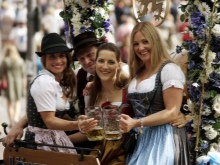
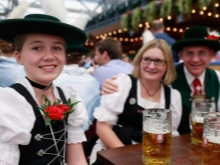
Fabrics and fit
Initially, the Bavarians sewed their costumes from natural fabrics: leather, linen, wool, loden. This tradition is still encouraged today. However, due to industrial textile development, today for sewing a national Bavarian costume, you can use any fabric. However, preference is still given to natural materials.
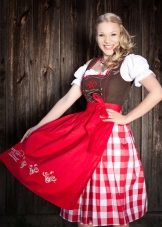
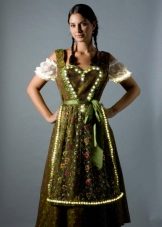
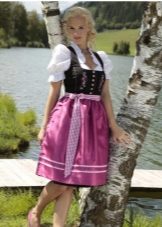
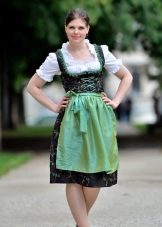
At this time, designers and fashion designers have the opportunity experiment not only with different fabrics for tailoring national costumes, but also with their cut. Women's dresses, sundresses, skirts, blouses, etc. are especially distinguished in this.
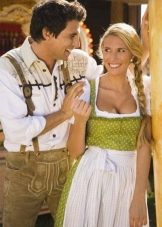
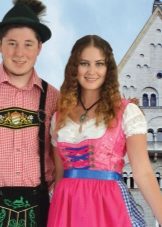
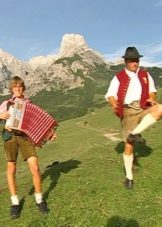
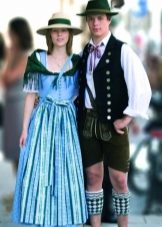
Varieties
- Women's national dress (dirndl), as a rule, looks very impressive, attractive and colorful. It includes a blouse with puffy or narrow sleeves, a vest resembling a corset, a very puffy skirt that can be attributed to the Renaissance, and an apron.An interesting fact is that initially special attention was paid to the length of the hem of the skirt - it should be 27 cm above the ground, which was equal to the level of a mug of beer.
- Male Bavarian costume famous for its world-famous leather pants. They can be three-quarters long, or short. An obligatory accessory to the pants is a wide belt or suspenders. The bottom, as a rule, is complemented by leggings and massive shoes. The top of the outfit is a shirt, vest and frock coat. Often vests can be decorated with various accessories: chains, key rings, locks, etc. Particular attention is drawn to the headdress, which is decorated with feathers, brushes or other decorative elements.
- Children's national the outfit is practically no different from the clothes of adults.
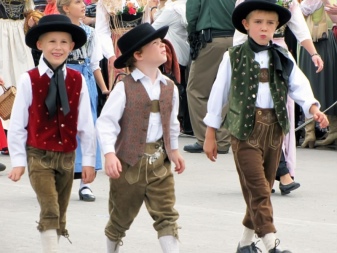
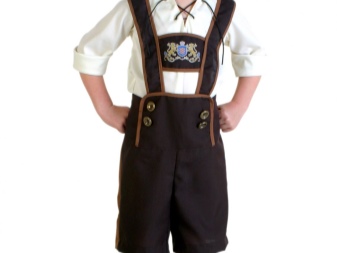
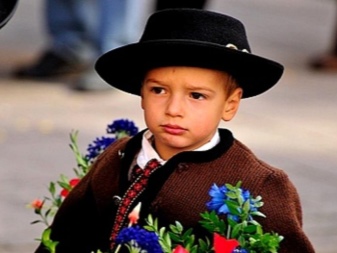
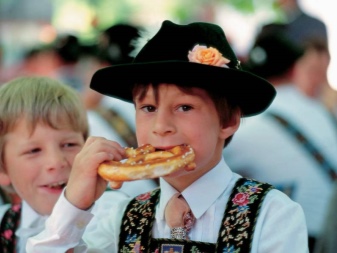
Accessories and shoes
The Bavarian costume for women is necessarily complemented by such an element as an apron. As a rule, it is always a bright, attractive color. There are many nuances associated with this accessory. In particular, from how the bow is tied on it, one can judge the marital status of its owner.
Often women complement the image with jewelry in the form of beads, bright, original scarves.
Shoes with buckles are used as shoes.
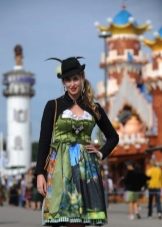
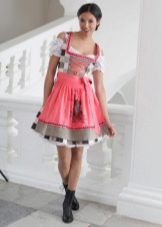
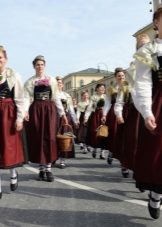
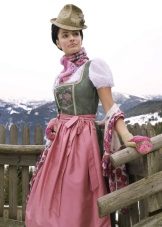
A headdress for men is a matter of their pride. A Bavarian in a stylish and well-chosen hat looks very impressive and attractive. Therefore, this element is given special attention.
Shoes for men are massive boots with thick soles.
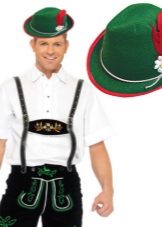

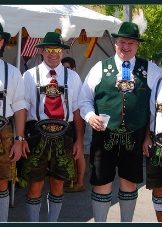
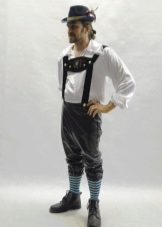
The man looks interesting in dark green three-quarter trousers with suspenders and a white shirt with short sleeves. Stylish shoes and a hat will help to complete the look.
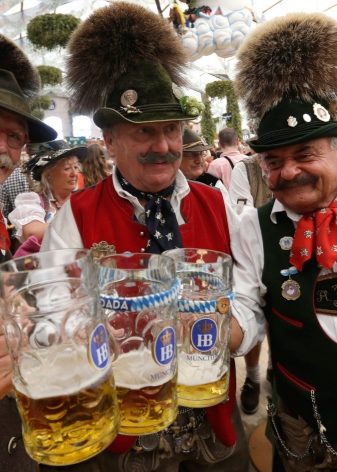
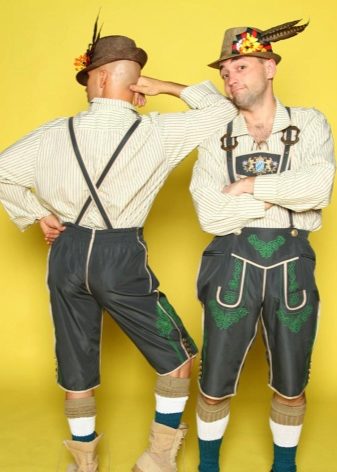
The national Bavarian costume has become the property of this region of Germany, and is known throughout the world. Honoring the traditions and customs of the ancestors is the duty of every nation. And the Bavarians succeed in this, which inspires respect and reverence.
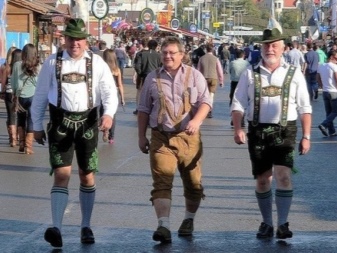
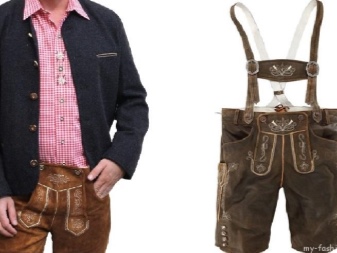
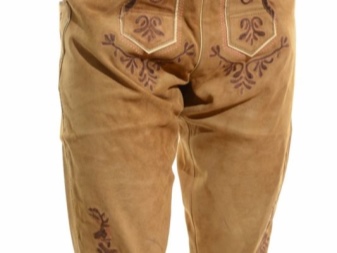
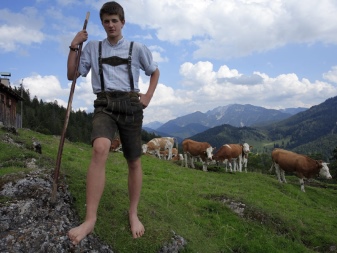
Modern models
To date, designers are experimenting a lot with the cut and style of the elements of the Bavarian costume. However, they do not violate his main concept and idea, which has been created over the years.
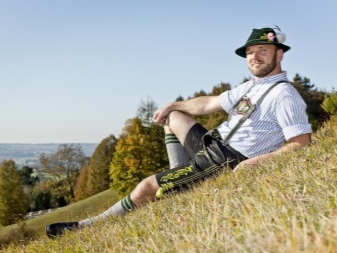
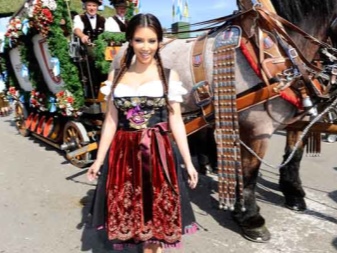
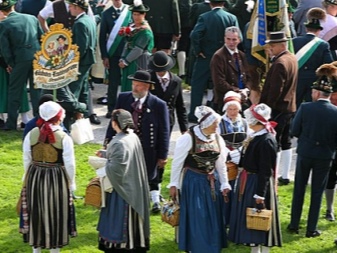
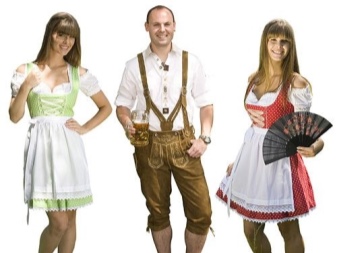
The women's costume looks bright and interesting, which includes a short, puffy, bright red skirt, a white blouse with short puff sleeves, a lace-up corset that perfectly emphasizes the girl's bust and a small apron. Even buckle shoes and an elegant feathered hat complete the overall look.
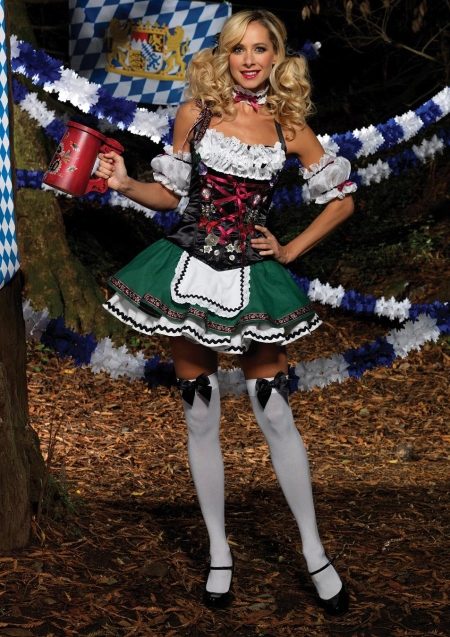
The man looks interesting in dark green three-quarter trousers with suspenders and a white shirt with short sleeves. Stylish shoes and a hat will help to complete the look.
The national Bavarian costume has become the property of this region of Germany, and is known throughout the world. Reading the traditions and customs of the ancestors is the duty of every nation. And the Bavarians succeed in this, which inspires respect and reverence.























